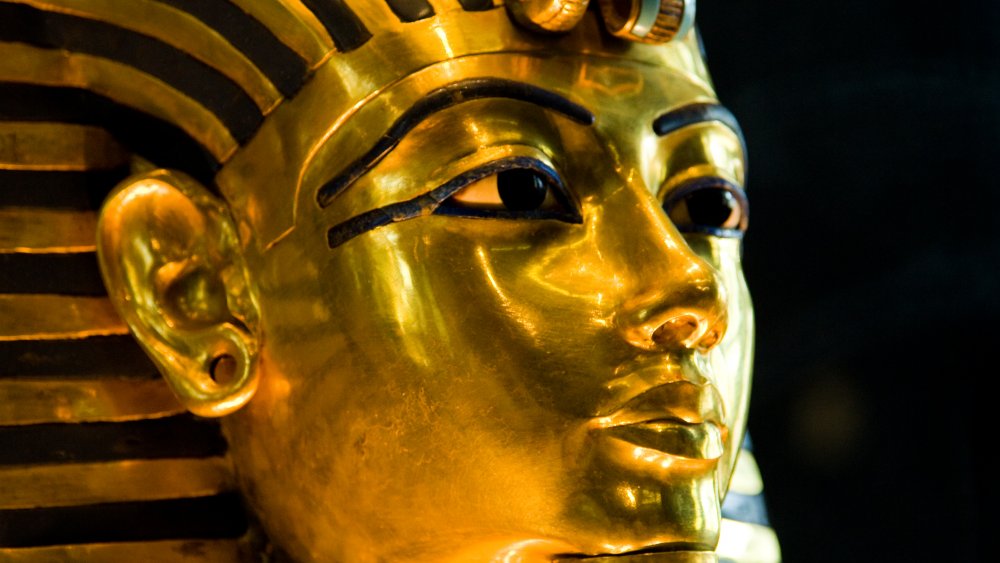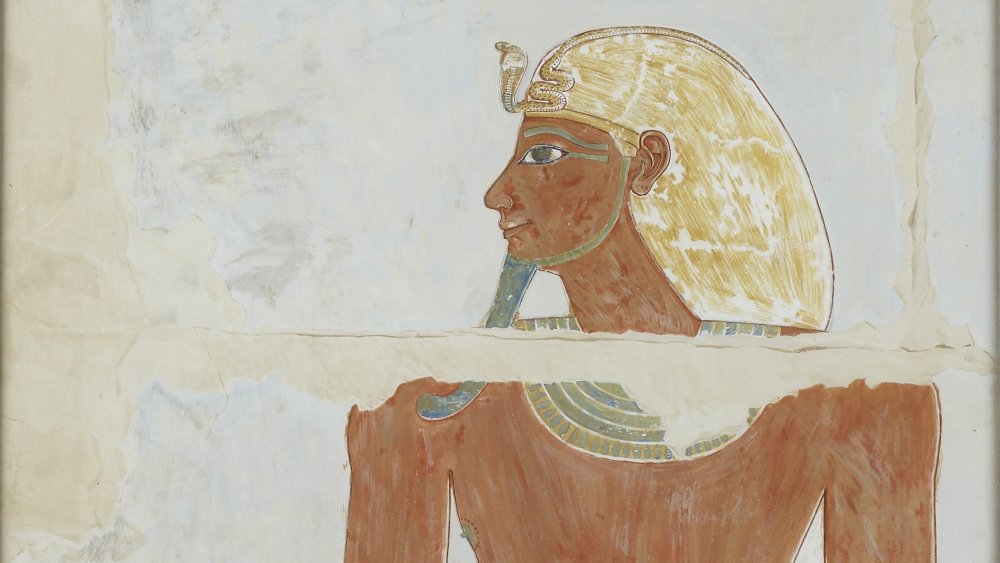The Messed Up Truth Of The Egyptian Pharaohs
When we talk about pharaohs, we really are talking about ancient history — Ancient Egyptian history, with a dollop of the Greeks thrown in for good measure. Their empire lasted from around 3100 BCE to the death of Cleopatra in 30 BCE, for a total of 170 men and women to hold the title, says History Hit. Included will be names like Tutankhamun (born in 1343 BCE, per Mental Floss), Ramses and, yes, Cleo.
A pharaoh had double responsibility: civil governance, and religious obligations. Depending on which era you're examining, a pharaoh might be an actual living deity, or might just be the really really special representative of the gods, says the Canadian Museum of History. Pharaohs were considered "high priest (or priestess) of every temple," per the Ancient History Encyclopedia, and built more temples to bring more honor to various gods, says the Ancient Egypt website. They ruled, and they ruled absolutely, on the street and in the temples.
Pharaohs had their own way of doing things
With great power comes great opportunity for — let's be charitable — eccentricity. Stories abound regarding the quirks (again, charity) of various pharaohs. For example, Listverse tells us about Pheros, supposedly blinded in a curse by the gods for his arrogance. An oracle told him he would recover his sight if he bathed them in the urine of a woman who had never slept with anyone but her husband. He started with his wife, and the result was not, shall we say, what he'd hoped. He went on to collect a sample from every woman in town and, the story goes, finally found his cure. His sight was restored, and he did two things: married that woman on the spot, and ordered his other wife (the one with the, shall we say, ineffective pee-pee) to be burned to death.
Different times, different cultures, different standards of excellence. Egyptian royal families would try to keep their bloodlines uncluttered by commoners by marrying other family members. King Tut, for instance, was married to someone who was either his half-sister or full sister, depending on her still-debated parentage. Egypt didn't seem to mind when a person of youth inherited the throne — Tut was all of nine, and close on his heels in that category was Ptolemy XIII, who was 10 and married to his older sister, Cleopatra, when he ascended to the throne in 51 BCE, reports History. When he died in battle she married another brother, Ptolemy ("And this is my other brother Ptolemy") XIV. Him she had killed. And you thought your family dinners were contentious.

